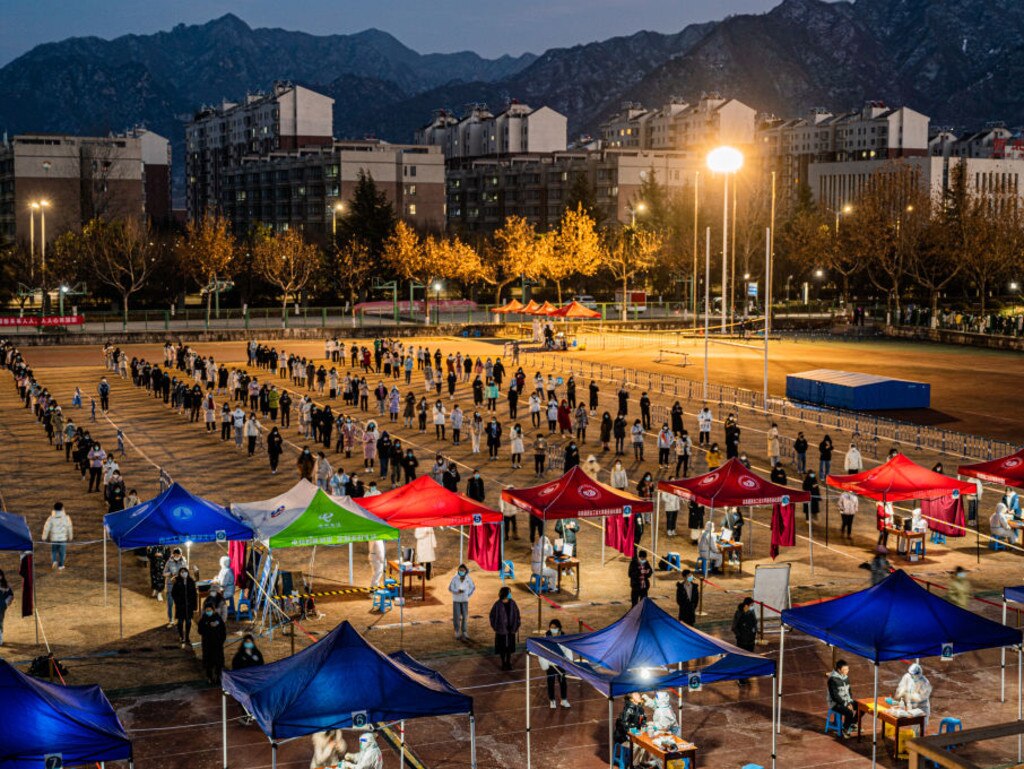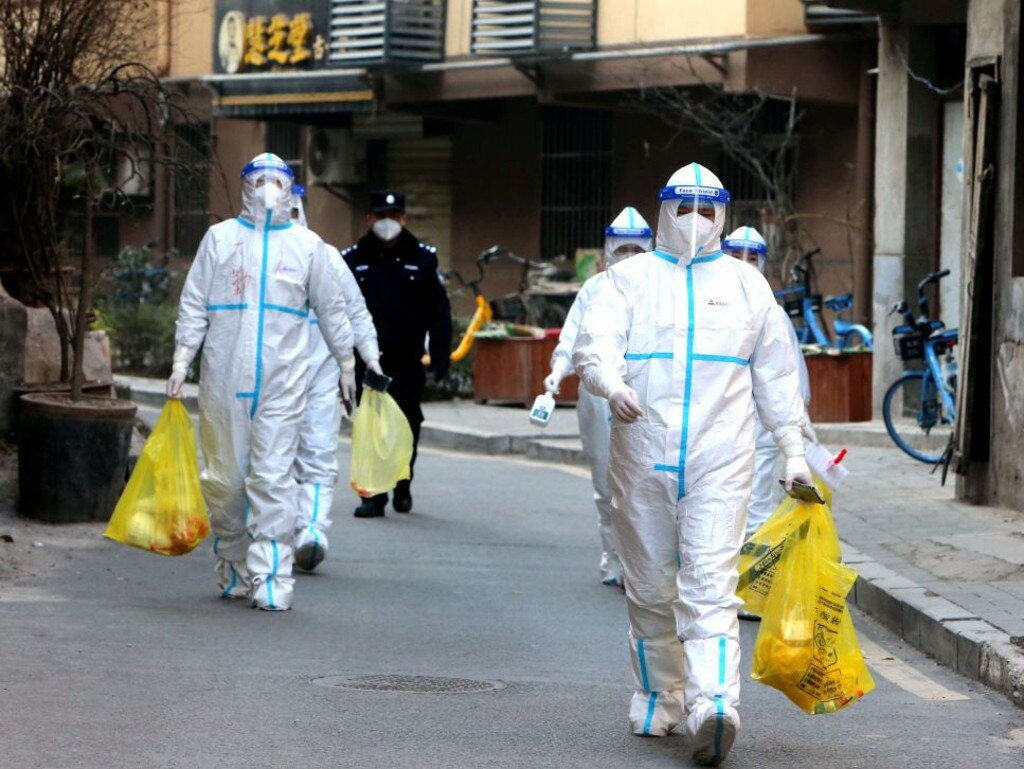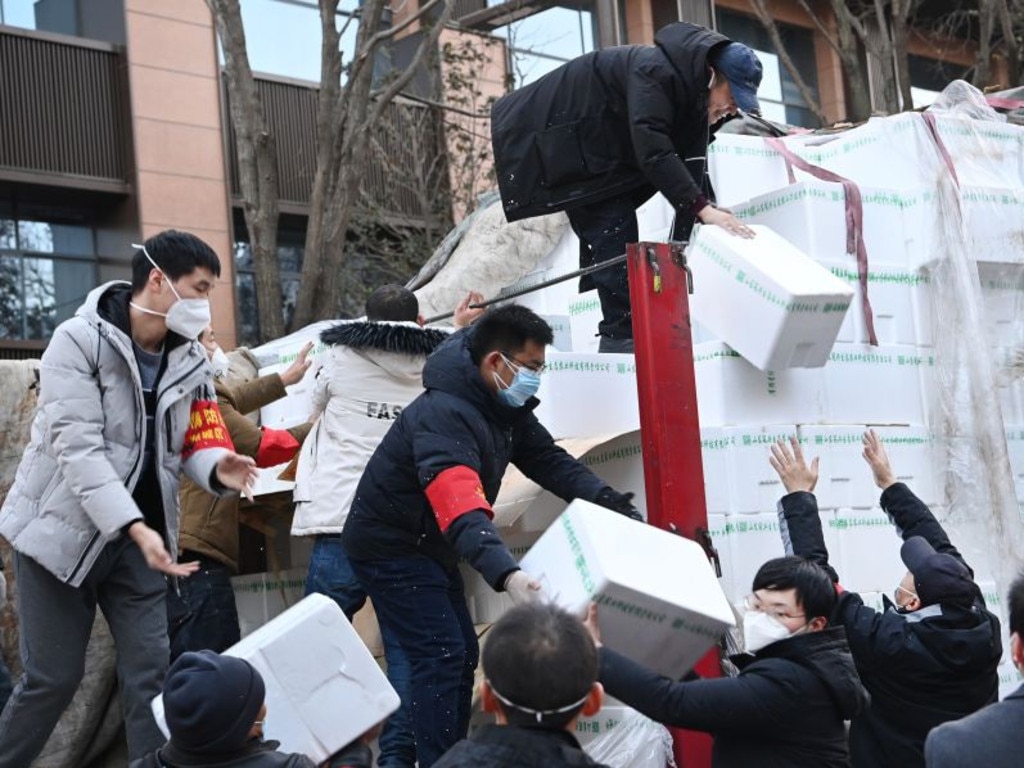Officials sacked in China’s most locked down city as Covid-19 tracking system fails
Confronting footage of a pregnant woman bleeding outside a hospital has emerged as a major Chinese city suffers a system meltdown.
Life has fallen into further disarray in the Chinese city Xi’an after a government Covid-19 tracing app crashed, causing a raft of complications in verifying case numbers in the city of 13 million.
The application is used to track individuals’ infection status and proof of vaccination, which are both essential requirements when entering hospitals in the region.
Locals were unable to access their test results after Xi’an – which is now regarded as China’s most locked down city amid the country’s “most severe” outbreak since Wuhan 2019 – began a new round of nucleic acid tests.
The provincial government released a statement announcing its system was clogged from overwhelming traffic, assuring the public the issue was being fixed.
According to official numbers, Xi’an currently has 1700 active Delta strain cases. Reports claim the newer, more highly transmissible Omicron variant is yet to hit the city.
News website iFeng.com reported a local women’s organisation is investigating reports a pregnant woman lost her baby after being denied entry to two hospitals on New Year’s Day, after confronting footage of a woman sitting bleeding on a footpath outside a hospital in Xi’an’s Gaoxin Hospital went viral on Weibo.
According to reports, the woman was unable to prove her negative result via the malfunctioning health code app.
The Wall Street Journal reported the woman, identified only by her surname Wang, had responded to the tragedy on Weibo, claiming she was also denied at second nearby hospital because they were only accepting Covid patients.
She was accepted at a third hospital hours later with the help of a local police officer, but by that point she had “lost too much blood to be able to speak and then found out her unborn baby was dead”.

China removed two public officials were from their posts on Sunday in an immediate response to the complications involved in the new outbreak. Communist Party secretary of the district committee Wang Bin and his deputy Cui Shiyue were publicly demoted to “further strengthen epidemic prevention and control in the Yanta district of Xian”.
The municipal Communist Party Committee also announced it had temporarily dismissed Liu Jun, who oversees the region’s health code system as the head of Xi’an’s big-data bureau. The bureau’s comprehensive accumulation of public data is essential in the regime’s tracking of citizens’ movement and vaccination status.
The stringent restrictions and tracking protocols have been instated in a last-ditch attempt at reaching “Covid-zero”. China remains one of the only nations in the world still attempting to completely eradicate the virus via restrictions, which have brought on food shortages affecting the poorest sections of the community.
As per new rules introduced last week, all non-essential businesses have been forced to close, while each household can only send out one person to buy necessities every three days.

“The Xi’an outbreak is the most severe after the Wuhan lockdown,” Zeng Guang, one of China’s top Covid-19 advisers, said via the South China Morning Post. “We hope Xi’an can create a new experience in containing an outbreak in the short-term, after losing control at the very initial stage.”
Wu Hao, a specialist in community epidemic prevention and control from the Capital Medical University, strongly endorsed the city’s decision to go into lockdown despite recording case numbers lower than most suburbs in Sydney or Melbourne.
Zero deaths related to Covid-19 have been reported by officials anywhere across China’s 1.4 billion population in the past 11 months (China’s official figures have long been met with suspicion from the rest of the world).
“In epidemic control the number of new cases is a factor because large numbers will impact the city with more resources needed for control, but the most important one is whether the outbreak has a clearly identified source and whether cases are in the same transmission chain to be quickly blocked,” Wu told Beijing Daily over the weekend.
“When there has been a spread of community outbreaks with multiple unknown sources, it is important to act swiftly and stabilise the tense situation first. There is also risk of spreading Covid-19 cases outside Xian as the holidays approach.”

China’s heavy-handed approach to the Xi’an outbreak has been linked to concerns the upcoming Winter Olympics will be compromised from mishandling of the virus. High-ranking officials in neighbouring provinces have ordered those in charge to prevent the outbreak from “spilling outside the city” or face consequences.
More Coverage
State sources revealed 26 unnamed officials were “punished” after inspectors found problems at testing labs and an alleged hotel quarantine bungle.
“They did not pay enough attention or implement policies vigorously. The internal management is chaotic, all leading to staff at quarantine hotel staff being infected,” a disciplinary official said via the SCMP.
“Those who do not take responsibility or act fast, shift the blame or give a passive response … (have) been investigated, exposed and punished.”
Migrant worker in Xi'an, China (WSJ):
— Adam Schwab (@lux_schwab) January 6, 2022
"To be honest, I don’t think Covid is scary. I think having no food to eat is my biggest threat"
Zoe Hyde: "Elimination is the only long-term strategy...I’m not someone who typically praises China, but the government there understood this"






